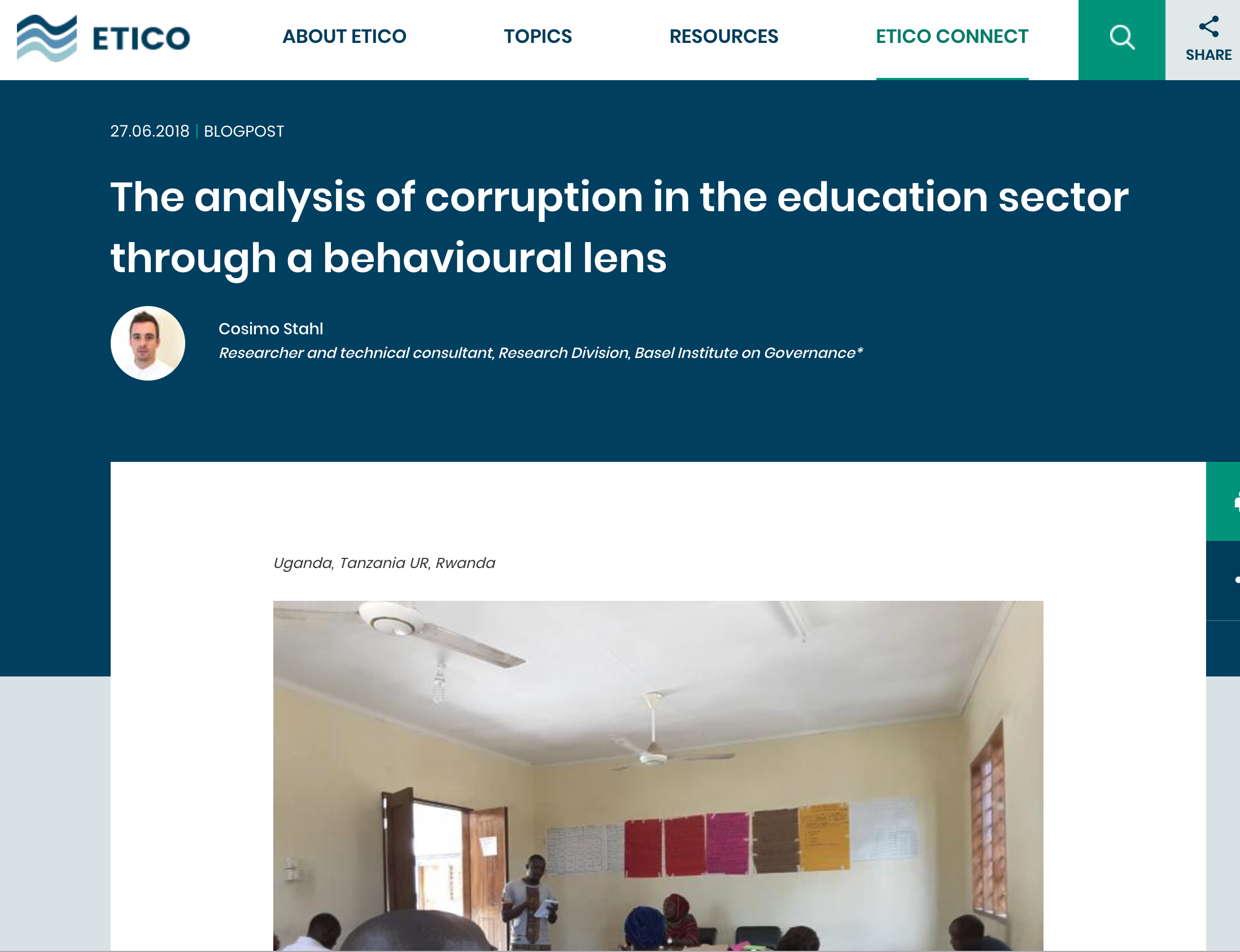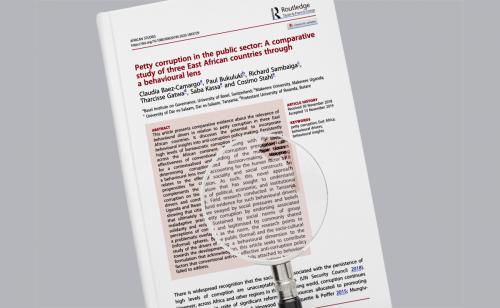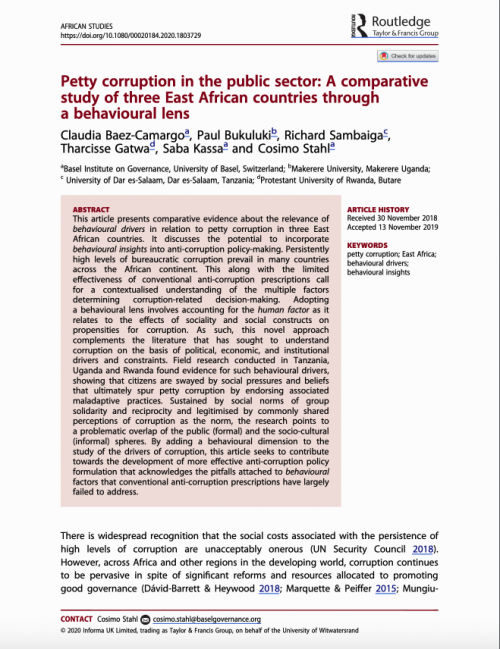The analysis of corruption in the education sector through a behavioural lens
Corruption is pervasive in Sub-Saharan Africa’s educational sector. The phenomenon includes not only bribery but also practices that the World Bank has labeled "quiet corruption." While anti-corruption interventions tackling such practices are typically based on assumptions of rational decision-making from classical economics, Cosimo analyses petty corruption practices through a behavioural lens.
Discussing the cases of Tanzania, Uganda, and Rwanda, he makes the case for a novel type of content-sensitive intervention that acknowledges the role of multiple drivers – including those that are non-rational.
This article appeared as a blog plot on the ETICO portal of UNESCO’s International Institute for Educational Planning (IIEP-UNESCO).
Links and other languages

Date published
Publisher
Etico
Author(s)



